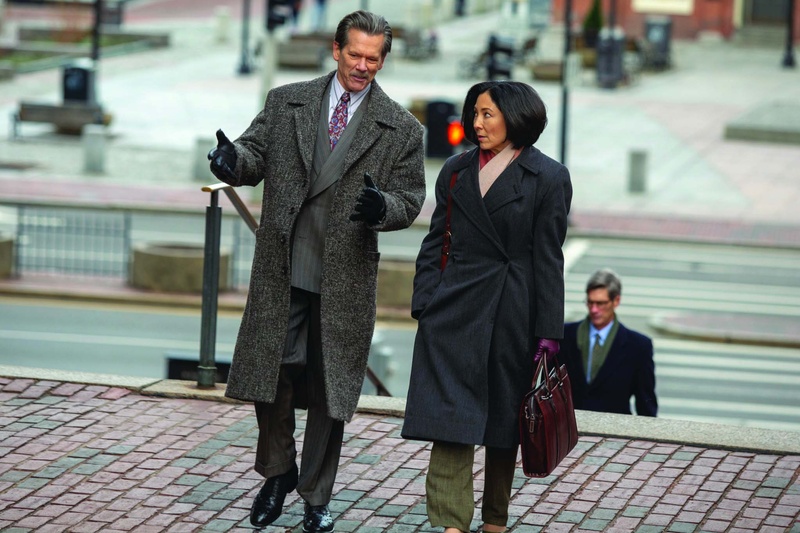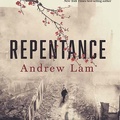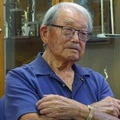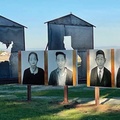The competent no-nonsense character Keiko Elizabeth plays on Showtime’s hit television show City on a Hill contradicts a negative and false stereotype some non-Asian people have of Asians— of being meek, submissive.
“In the show Kevin Bacon plays a corrupt FBI agent and I play his boss,” Elizabeth said. “I play a woman who was born in a (U.S. Government-run) concentration camp at Manzanar. When I met with the show’s producer to discuss my part I asked him if I would be playing a sufferer who doesn’t want to rock the boat (speak out on injustice). He said no.”
Elizabeth plays the part of U.S. Attorney Karen Shimizu.
In the 1960’s about the only Asian non-Asians would ever see on television would be playing the part of a maid or butler.
Elizabeth agrees her stardom was made possible by the sacrifice and contributions made by family members and other Japanese Americans imprisoned during World War II by their own government, including the elderly and children, for no legitimate reason at all.
In fact, her first year of college was paid for from reparations awarded to her father, money paid by the government to camp survivors in the 1990’s to try and compensate for a dreadful wrong.
In 1942 the government imprisoned 120,000 mostly Japanese Americans living along the West Coast for suspected disloyalty and robbed them of their jobs, property and freedom, herding them into a dozen major concentration camps. Many were located in remote desert areas of the southwest. Additional prisoners were incarcerated in smaller camps run by the U.S. Dept. of Justice (DOJ).
It took until the 1980’s for the U.S. Government to finally admit it had committed an injustice.
Elizabeth said the stereotyping of Asians led her in college to try for a career that was supposedly acceptable for a person of Asian heritage, to become a doctor or lawyer. Becoming an actress was almost unheard of.
“It never crossed my mind,” Elizabeth said.
Her ancestors originally came from the Izu Peninsula, a mountainous region west of Tokyo. Those on her father’s side were farmers while her mother’s side had been teachers.
Her grandfather Kichinosuke Suda was born in Japan and immigrated to the U.S. in the early 1900’s. Her grandmother Keiko Sano had been born in San Francisco. After they met and married the couple ran a retail store in San Francisco and a school for Japanese children called the Sano School.
“These children could not attend regular public school back then,” Elizabeth said.
When World War II came her grandparents were imprisoned in the Topaz War Relocation Center in Utah; then were moved to the Tule Lake War Relocation Camp in Siskiyou County, a remote area of Eastern California near the Oregon Border.
Tule Lake was a camp which housed those prisoners government officials decided were trouble makers, those who had expressed opposition to their own imprisonment, or who refused to sign a questionnaire demanding that they swear loyalty. Or even those who signed the questionnaire but who didn’t answer the questions in a manner to the jailer’s liking.
Elizabeth’s father Izumi Suda was born in the Tule Lake Camp, while her mother Joanne was born in Colorado.
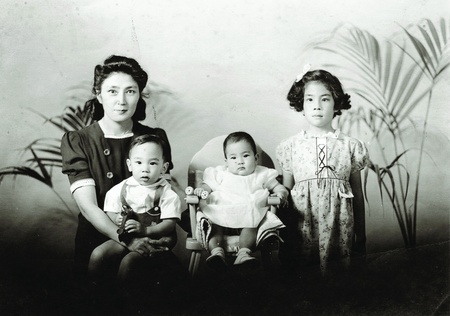
“After World War II my grandparents and father went back to Japan,” Elizabeth said. “My grandmother wanted to remain in the U.S., but she went too. She did what a good wife would do.”
The couple moved near Tokyo and started a construction business working with occupation forces of the U.S. military.
“My father when he reached 17 returned to the U.S. because he had been born a U.S. citizen, and had to register for the (military) draft,” Elizabeth said.
Izumi Suda attended college in Oregon and ironically took a job working for the U.S. Bureau of Reclamation, the federal agency that owned land at the Tule Lake site. He would later move to California and work for the Sacramento Municipal Utility District (SMUD) power company.
“I was born in Elk Grove,” Elizabeth said.
Elizabeth said when she was a small girl some of the other (Anglo) kids would taunt her and tell her to “go home,” meaning Japan.
“They would say, go back where you came from,” she said. “I was home. I would walk back to my house. When I was seven, I literally didn’t know what these kids meant.”
Elizabeth attended Stanford University where she majored in biology. She also began teaching math and science at the Paul Robeson Diego Rivera Academy, to troubled young people who were court-mandated to attend classes after release from Juvenile Hall in San Francisco.
A turning point came when Elizabeth met a student whose friend had been killed in a drive-by shooting. In grief the student wrote a play about the experience and Elizabeth helped produce it. The play was presented before an audience at the school.
“I stood in the back watching the actors perform and it was so powerful,” she recalled. “It had a healing and cathartic effect. I said to myself, I want to do that (act).”
Elizabeth moved to Hawaii where she began to audition for community theater productions. She already had a biology degree from Stanford and a teaching credential. She decided to move to Los Angeles and study acting at California State University, Fullerton, pursuing a master of fine arts degree (MSA).
She began auditioning and appeared in mostly small parts on TV shows like the soap operas Days of Our Lives and General Hospital, and the crime drama Criminal Minds. Her big break came in January of 2020 just before the start of the COVID-19 epidemic. She was cast in City on a Hill, then in its second season.
“This story takes place in the 1990’s,” Elizabeth said. “My first audition they didn’t know my family had been in a concentration camp during World War II, but after the next audition (call-back) we talked about it. The show’s producer said ‘see you in Boston.’ Normally the show is shot in New York, but some scenes are in Boston.”
She had achieved a continuing role in a highly rated national TV show. Elizabeth said she was astounded.
“I didn’t know what to do,” she said. “I called my husband.”
The well-known Hollywood producer Tom Fontana produces City on a Hill. A revolving number of directors are in charge of filming the cable show, which was renewed for season three.
A few winters ago, Elizabeth, her father, and aunt journeyed to the former site of the Tule Lake Camp, today a desolate spot with little except barren land and wind-blown dust. It was her father’s first return to the camp where he had been imprisoned as a child and he wanted to see it in winter—the same time of year when he had been born.
Consulting a map, Elizabeth said, they were able to hike to find the exact spot where the prison barracks, number 3927D, had once stood.
“It became very emotional for him (Izumi) and he didn’t expect it to be,” Elizabeth said.
Izumi picked some grass, made a cross, and placed it on the spot.
Elizabeth is working to produce a film documentary about the camp experience of her family and others, to be titled In Her Name.
“It will be about the legacy of three generations,” she said. “As producer I’m going to fund the project through grants.”
Donations from the public are gratefully accepted. Persons donating can get a 501C3 tax write-off. Interested persons can go here.
The television show City on a Hill can be viewed by going to Showtime.com or Amazon Prime (Video).
Elizabeth said the valuable contributions to the quality of life in this country made by Japanese Americans who endured the camps and had been loyal to the U.S. all along, including those who defended with their lives this country in war (442nd Regimental Combat Team), need to be recognized by all Americans.
“Our stories really matter,” she said. “They need to be told so that we can create change.”
*This article was originally published on the NikkeiWest.
© 2021 John Sammon / NikkeiWest


